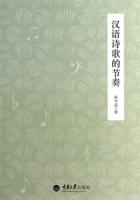The financial economy of American capitalism exhibits in more dramatic shape a tendency common to the finance of all developed industrial nations.The large, easy flow of capital from Great Britain, Germany, Austria, France, etc., into South African or Australian mines, into Egyptian bonds, or the precarious securities of South American republics, attests the same general pressure which increases with every development of financial machinery and the more profitable control of that machinery by the class of professional financiersThe kind of way in which such conditions tend toward war might have been illustrated, if Mr.Hobson had been writing at a later date, by various more recent cases.A higher rate of interest is obtainable on enterprises in an undeveloped country than in a developed one, provided the risks connected with an unsettled government can be minimized.To minimize these risks the financiers call in the assistance of the military and naval forces of the country which they are momentarily asserting to be theirs.In order to have the support of public opinion in this demand they have recourse to the power of the Press.
The Press is the second great factor to which critics of capitalism point when they wish to prove that capitalism is the source of modern war.Since the running of a big newspaper requires a large capital, the proprietors of important organs necessarily belong to the capitalist class, and it will be a rare and exceptional event if they do not sympathize with their own class in opinion and outlook.They are able to decide what news the great mass of newspaper readers shall be allowed to have.They can actually falsify the news, or, without going so far as that, they can carefully select it, giving such items as will stimulate the passions which they desire to stimulate, and suppressing such items as would provide the antidote.In this way the picture of the world in the mind of the average newspaper reader is made to be not a true picture, but in the main that which suits the interests of capitalists.This is true in many directions, but above all in what con- cerns the relations between nations.The mass of the population of a country can be led to love or hate any other country at the will of the newspaper proprietors, which is often, directly or indirectly, influenced bythe will of the great financiers.So long as enmity between England and Russia was desired, our newspapers were full of the cruel treatment meted out to Russian political prisoners, the oppression of Finland and Russian Poland, and other such topics.As soon as our foreign policy changed, these items disappeared from the more important newspapers, and we heard instead of the misdeeds of Germany.Most men are not sufficiently critical to be on their guard against such influences, and until they are, the power of the Press will remain.
Besides these two influences of capitalism in promoting war, there is another, much less emphasized by the critics of capitalism, but by no means less important: I mean the pugnacity which tends to be developed in men who have the habit of command.So long as capitalist society persists, an undue measure of power will be in the hands of those who have acquired wealth and influence through a great position in industry or finance.Such men are in the habit, in private life, of finding their will seldom questioned; they are surrounded by obsequious satellites and are not infrequently engaged in conflicts with Trade Unions.Among their friends and acquaintances are included those who hold high positions in government or administration, and these men equally are liable to become autocratic through the habit of giving orders.It used to be customary to speak of the ``governing classes,'' but nominal democracy has caused this phrase to go out of fashion.Nevertheless, it still retains much truth; there are still in any capitalist community those who command and those who as a rule obey.The outlook of these two classes is very different, though in a modern society there is a continuous gradation from the extreme of the one to the extreme of the other.The man who is accustomed to find submission to his will becomes indignant on the occasions when he finds opposition.Instinctively he is convinced that opposition is wicked and must be crushed.He is therefore much more willing than the average citizen to resort to war against his rivals.Accordingly we find, though, of course, with very notable exceptions, that in the main those who have most power are most warlike, and those who have least power are least disposed to hatred of foreign nations.This is one of the evils inseparable from the concentration of power.It will only be cured by the abolition ofcapitalism if the new system is one which allows very much less power to single individuals.It will not be cured by a system which substitutes the power of Ministers or officials for the power of capitalists This is one reason, additional to those mentioned in the preceding chapter, for desiring to see a diminution in the authority of the State.
Not only does the concentration of power tend to cause wars, but, equally, wars and the fear of them bring about the necessity for the concentration of power.So long as the community is exposed to sudden dangers, the possibility of quick decision is absolutely necessary to self- preservation.The cumbrous machinery of deliberative decisions by the people is impossible in a crisis, and therefore so long as crises are likely to occur, it is impossible to abolish the almost autocratic power of governments.In this case, as in most others, each of two correlative evils tends to perpetuate the other.The existence of men with the habit of power increases the risk of war, and the risk of war makes it impossible to establish a system where no man possesses great power.















